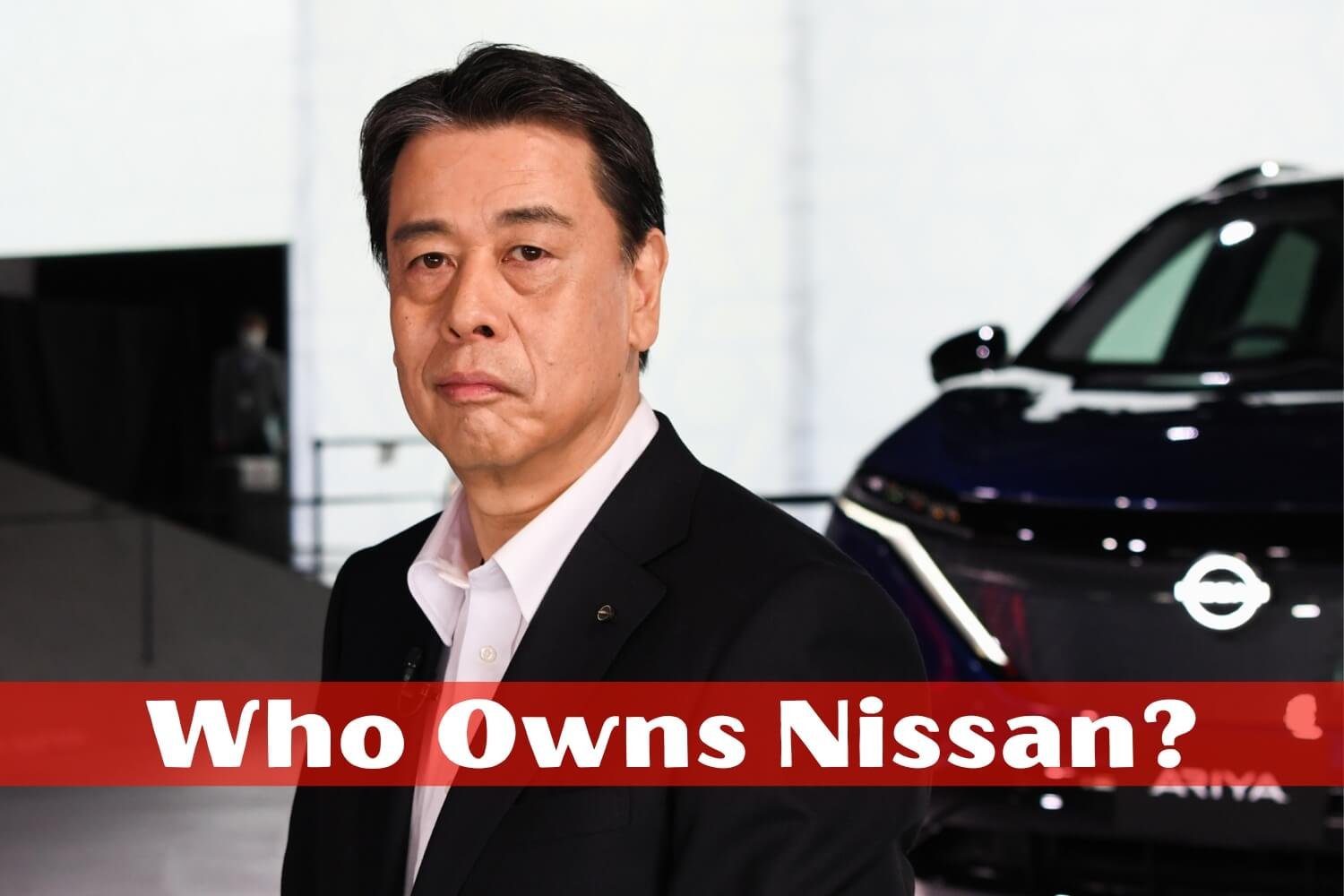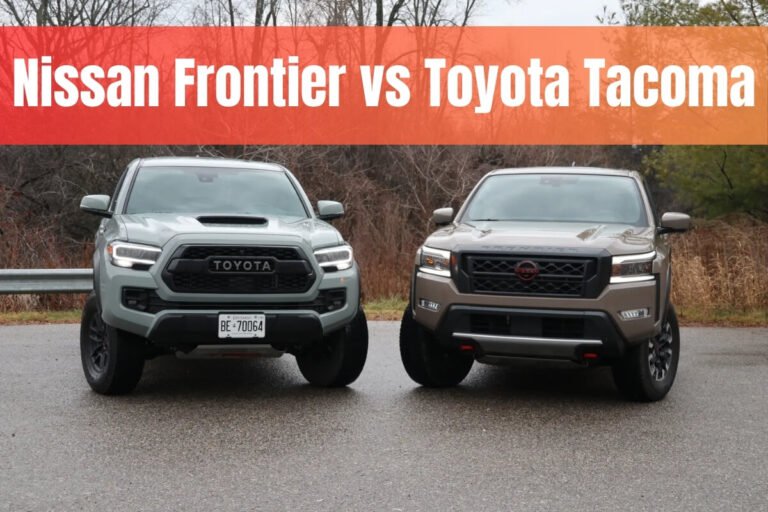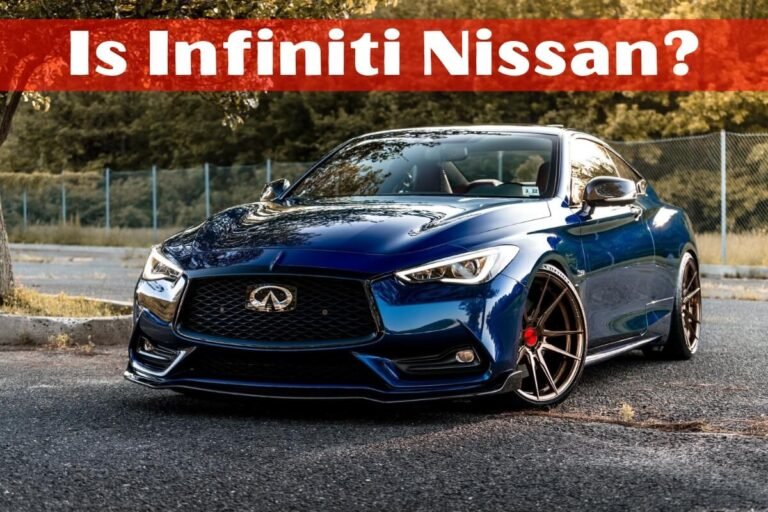Who Owns Nissan? The Story of a Global Automotive Giant

Introduction: Nissan is a name that resonates with car enthusiasts and daily commuters alike. With a rich history spanning over eight decades, the Japanese automaker has established itself as a global powerhouse in the automotive industry. However, the question of “who owns Nissan?” often arises, given the company’s intricate corporate structure and strategic alliances. In this comprehensive guide, we’ll delve into the fascinating story behind Nissan’s ownership, tracing its origins, exploring its current leadership, and unveiling its future ambitions. Whether you’re a car aficionado, an investor, or simply curious about the inner workings of major corporations, this in-depth look at who owns Nissan will provide valuable insights.
To address the query head-on, Nissan is owned by the Renault-Nissan-Mitsubishi Alliance, a strategic partnership formed in 1999 between the Japanese automaker and French automaker Renault, later joined by Mitsubishi Motors in 2016. Throughout this article, we’ll unravel the complexities of this alliance, examine Nissan’s global manufacturing footprint, and shed light on the company’s future directions, including its ambitious electrification and carbon neutrality goals.
Nissan’s Origins – From Humble Beginnings to Global Recognition
Nissan’s story begins in 1933 when the company was founded as the Nissan Motor Co., Ltd. in Yokohama, Japan. Its origins can be traced back to the Kwaishinsha Motor Car Works, an automotive venture established in 1911, and the subsequent merger with Tobata Casting in 1926. The company’s initial focus was on producing compact vehicles for the Japanese market, but its ambitions soon expanded beyond domestic borders.
In 1958, Nissan made its debut in the United States under the brand name “Datsun,” introducing the first mass-produced Japanese vehicles to American consumers. This strategic move marked the beginning of Nissan’s global expansion and laid the foundation for its future success in international markets.
Over the years, Nissan has been at the forefront of innovation, introducing groundbreaking technologies and iconic models that have left an indelible mark on the automotive industry. One of its most significant milestones was the merger with Prince Motor Company in 1966, which brought the renowned Skyline and Gloria models into Nissan’s lineup, further solidifying its reputation for performance and quality.
The Renault-Nissan-Mitsubishi Alliance: Unraveling the Ownership Structure
While Nissan’s origins can be traced back to Japan, its ownership structure today is the result of a strategic alliance formed in 1999 with French automaker Renault. This partnership, known as the Renault-Nissan Alliance, was initiated when Renault acquired a 36.8% stake in Nissan, effectively becoming the company’s largest shareholder.
The alliance was designed to leverage the strengths of both companies, allowing them to share resources, technologies, and manufacturing facilities, ultimately reducing costs and increasing competitiveness in the global market. In return for Renault’s investment, Nissan received a 15% non-voting stake in the French automaker.
In 2016, the alliance expanded further with the addition of Mitsubishi Motors, creating the Renault-Nissan-Mitsubishi Alliance. This move solidified the group’s position as one of the world’s largest automotive manufacturers, with a combined global market share of over 10%.
As of 2023, Renault holds a 43% voting stake in Nissan, while Nissan maintains its 15% non-voting stake in Renault. However, recent negotiations between the two companies have focused on rebalancing this cross-shareholding structure to create a more equal partnership.
Nissan’s Global Footprint: Where Are Nissan Cars Made?
Nissan’s global manufacturing footprint is truly extensive, with production facilities spanning multiple continents. The company’s primary manufacturing hubs are located in Japan, the United States, Mexico, and several other countries around the world.
Japan: The Heart of Nissan’s Operations
Nissan’s headquarters and several key manufacturing plants are located in Japan, where the company’s roots lie. Some of the notable facilities in Japan include:
- Tochigi Plant: Responsible for producing iconic models like the Nissan GT-R and 370Z.
- Oppama Plant: Known for manufacturing vehicles such as the Nissan Skyline and Infiniti Q50.
- Kyushu Plant: Produces the Nissan Armada, among other models.
United States: Strategic Manufacturing Hubs
To cater to the growing demand in the American market, Nissan has established significant manufacturing operations in the United States, including:
- Smyrna, Tennessee: This plant is Nissan’s highest-volume production facility in North America, responsible for manufacturing popular models like the Altima, Maxima, Leaf, Rogue, and Pathfinder, as well as the Infiniti QX60.
- Canton, Mississippi: Home to Nissan’s truck production, this facility manufactures the Nissan Titan, Frontier, and NV vans.
- Decherd, Tennessee: Dedicated to engine production for Nissan and Infiniti vehicles manufactured in the U.S.
Mexico: A Strategic Manufacturing Hub
Nissan’s manufacturing presence in Mexico dates back to 1966, with the company’s plant in Aguascalientes serving as a key production hub for models like the Nissan Versa and Sentra.
Other Global Manufacturing Sites
In addition to the major production facilities mentioned above, Nissan also has manufacturing operations in countries like Brazil, Russia, India, and various locations throughout Europe and Asia. This global footprint allows Nissan to efficiently cater to local markets and meet the diverse demands of consumers worldwide.
H3: Who Owns Infiniti? Nissan’s Luxury Vehicle Division
While Nissan is known for its mainstream vehicles, the company also boasts a luxury brand called Infiniti. Introduced in 1989, Infiniti was created to target the premium vehicle segments in the United States and compete with established luxury brands like BMW and Mercedes-Benz.
Infiniti is wholly owned by Nissan Motor Company and operates under the same ownership structure as its parent company. This means that the Renault-Nissan-Mitsubishi Alliance, which owns Nissan, also has a stake in the Infiniti brand.
Infiniti vehicles are designed and engineered to deliver a premium driving experience, combining luxury, performance, and advanced technologies. From the sleek Q50 sedan to the capable QX80 SUV, Infiniti’s lineup caters to discerning consumers seeking a blend of sophistication and driving pleasure.
Leadership and Corporate Structure
Navigating the corporate landscape of a global automotive giant like Nissan requires strong leadership and a well-defined management structure. At the helm of Nissan’s operations is the company’s President and Chief Executive Officer, Makoto Uchida, who assumed this role in December 2019.
Under Uchida’s leadership, Nissan has focused on rebuilding its brand image, streamlining operations, and charting a course towards sustainable growth and profitability. The company’s management philosophy emphasizes innovation, customer satisfaction, and a commitment to environmental responsibility.
Nissan’s corporate structure is designed to facilitate efficient decision-making and foster collaboration among its various divisions and global operations. The company’s executive team, comprised of seasoned industry professionals, oversees critical areas such as product planning, manufacturing, sales and marketing, and research and development.
Additionally, Nissan places a strong emphasis on corporate social responsibility (CSR) initiatives, recognizing its role in creating a sustainable future for the automotive industry and society as a whole. From reducing its environmental footprint to supporting local communities, Nissan’s CSR efforts are an integral part of its corporate culture.
Navigating Nissan’s Vehicle Lineup
Nissan’s vehicle lineup is a testament to the company’s commitment to innovation and its ability to cater to diverse consumer preferences. From sleek sedans to rugged SUVs, electric vehicles to high-performance sports cars, Nissan’s portfolio offers something for every driving enthusiast.
Sedans and Compact Cars
The Nissan Altima and Nissan Sentra are two of the brand’s most popular sedan offerings, combining stylish design, fuel efficiency, and a comfortable driving experience. The compact Nissan Versa and the subcompact Nissan Kicks appeal to urban dwellers and commuters seeking affordable and practical transportation solutions.
SUVs and Crossovers
Nissan’s SUV and crossover lineup includes the versatile Rogue, the rugged Pathfinder, and the stylish Murano. These vehicles cater to families and adventure seekers alike, offering ample space, capability, and advanced safety features.
Electric and Hybrid Vehicles
As a pioneer in electric vehicle technology, Nissan has been at the forefront of the industry’s transition towards more sustainable and environmentally-friendly transportation solutions. The iconic Nissan Leaf, introduced in 2010, was the world’s first mass-produced electric vehicle, paving the way for wider adoption of EVs globally.
Nissan’s commitment to electrification extends beyond the Leaf, with the company introducing advanced e-POWER technology in models like the Nissan Note. This innovative system combines a gasoline engine with an electric motor, providing drivers with the smooth and instant torque delivery of an electric vehicle while minimizing emissions.
Sports Cars and Performance Vehicles
For driving enthusiasts seeking adrenaline-fueled experiences, Nissan’s lineup includes the iconic GT-R and the legendary Z car. The GT-R, in particular, has earned a reputation as a true performance powerhouse, boasting impressive acceleration, handling, and cutting-edge technologies that put it on par with some of the world’s most revered sports cars.
The Z car lineage, on the other hand, traces its roots back to the iconic Datsun 240Z, which ignited a passion for affordable sports cars in the 1970s. Today’s Nissan Z continues this legacy, offering a perfect blend of style, performance, and driver engagement.
Trucks and Commercial Vehicles
Nissan’s truck and commercial vehicle offerings cater to those with demanding hauling and towing needs. The Nissan Titan and Nissan Frontier pickups are designed to tackle tough jobs with their powerful engines, robust construction, and impressive towing capabilities.
Additionally, the Nissan NV Cargo and NV Passenger vans provide practical and versatile solutions for businesses and families alike, offering ample cargo space and a range of configurations to suit various transportation requirements.
H3: Is Nissan Still a Japanese Company?
While Nissan’s roots can be traced back to Japan, where it was founded and initially operated, the company’s ownership structure and global reach have evolved significantly over time. With the Renault-Nissan-Mitsubishi Alliance at the helm, Nissan can be considered a multinational corporation with a diverse range of stakeholders.
However, despite its global footprint and strategic alliances, Nissan remains deeply rooted in its Japanese heritage and identity. The company’s headquarters and several key manufacturing facilities are still located in Japan, and many of its iconic models, such as the GT-R and Z car, are designed and engineered in the country.
Furthermore, Nissan’s corporate culture and management philosophy are heavily influenced by Japanese business practices and values, emphasizing quality, innovation, and a commitment to customer satisfaction.
Future Directions: Nissan’s Ambition 2030 and Beyond
As the automotive industry continues to evolve, Nissan is actively positioning itself to remain at the forefront of innovation and sustainability. In 2021, the company unveiled its long-term vision, Nissan Ambition 2030, which outlines its strategic goals and initiatives for the next decade and beyond.
Electrification and Autonomous Driving
One of the key pillars of Nissan Ambition 2030 is the acceleration of electrification across its vehicle lineup. The company aims to introduce 23 new electrified models, including 15 all-electric vehicles, by 2030. This ambitious plan is driven by Nissan’s commitment to reducing its environmental impact and meeting the growing demand for zero-emission transportation solutions.
In addition to electrification, Nissan is actively pursuing the development of autonomous driving technologies. The company’s ProPILOT suite of driver assistance features is already available on select models, providing drivers with enhanced safety and convenience. Nissan’s long-term goal is to achieve fully autonomous driving capabilities, enabling a future where cars can navigate without human intervention.
Mobility Solutions and Connected Services
As the world becomes increasingly urbanized, Nissan recognizes the need for innovative mobility solutions that go beyond traditional vehicle ownership models. Through its Ambition 2030 initiative, the company aims to explore new services and business models that cater to evolving consumer needs, such as car-sharing, ride-hailing, and connected mobility services.
Carbon Neutrality and Sustainability
Nissan’s commitment to sustainability extends far beyond its vehicle lineup. The company has set ambitious targets to achieve carbon neutrality across its operations and life cycle by 2050. This involves reducing emissions from manufacturing processes, promoting the use of renewable energy sources, and implementing circular economy principles throughout its supply chain.
Furthermore, Nissan is actively collaborating with various stakeholders, including governments, industry partners, and local communities, to drive positive change and contribute to the development of a more sustainable society.
Final Thoughts
Nissan’s ownership structure and corporate history are intricately woven with strategic alliances, global expansion, and a relentless pursuit of innovation. From its humble beginnings in Japan to its current status as a multinational automotive powerhouse, Nissan’s journey has been marked by a commitment to delivering quality vehicles, embracing cutting-edge technologies, and adapting to the ever-evolving demands of the industry.
As the company navigates the future under the Renault-Nissan-Mitsubishi Alliance, its ambitious goals outlined in the Nissan Ambition 2030 initiative serve as a roadmap towards a more sustainable, connected, and autonomous future. With a focus on electrification, autonomous driving, and innovative mobility solutions, Nissan is poised to continue pushing boundaries and exceeding customer expectations worldwide.
Whether you’re a car enthusiast, an investor, or simply someone with a keen interest in the inner workings of major corporations, understanding who owns Nissan and the company’s long-term vision provides valuable insights into the dynamic world of the automotive industry. As the future unfolds, Nissan’s unwavering passion for innovation and its commitment to driving positive change will undoubtedly shape the way we perceive and experience mobility in the years to come.






